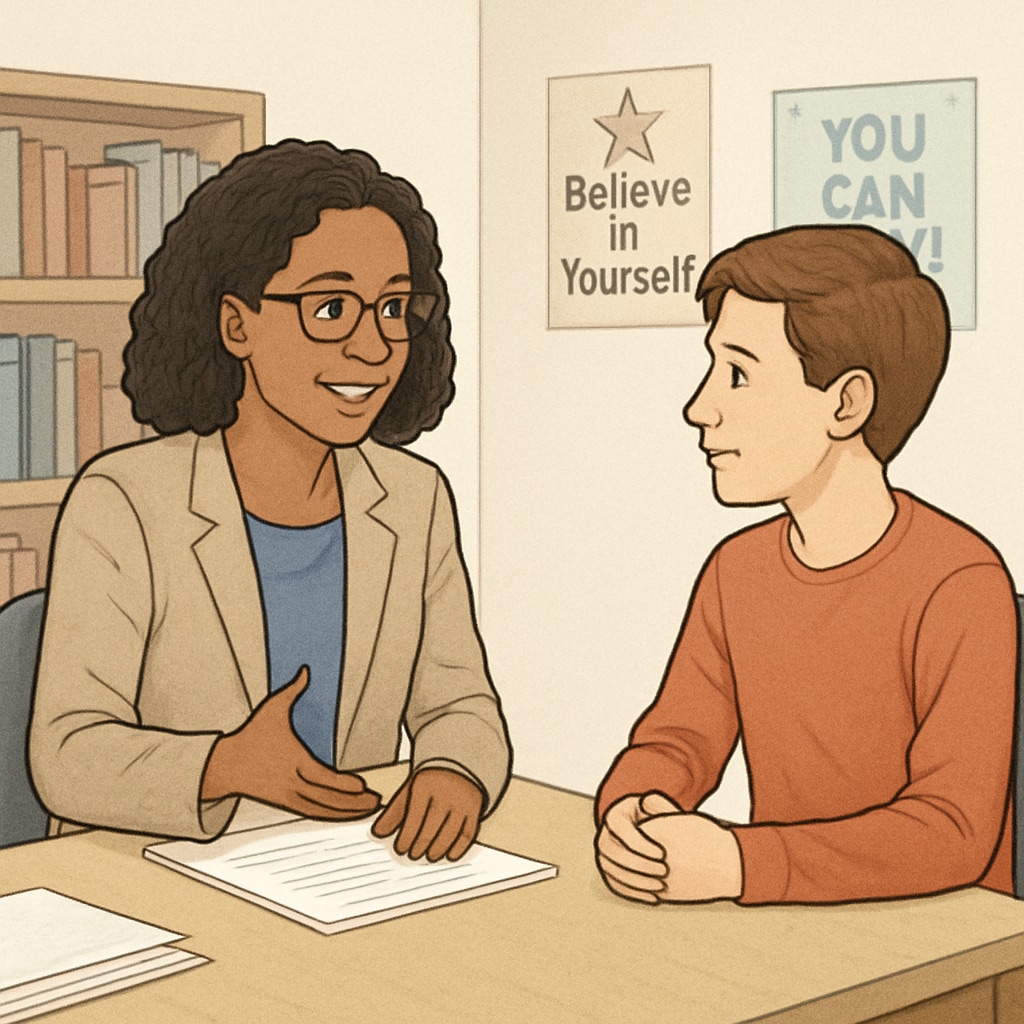Understanding the role of school counselors in the K12 education system is crucial for both educators and researchers. Graduate students conducting academic interviews with school counselors can gain valuable insights into the challenges and opportunities within the field. These interviews provide firsthand knowledge of how counseling professionals support students academically and emotionally, offering deeper perspectives for studies and applications in education psychology.

The Critical Role of School Counselors in K12 Education
School counselors are often the unsung heroes of K12 education. They serve as a bridge between students, families, and educators, ensuring that every child receives the emotional, social, and academic support they need to succeed. Their responsibilities include addressing mental health concerns, guiding students through academic challenges, and fostering positive peer relationships. In addition, they play a key role in identifying potential barriers to learning, such as bullying or family issues, and creating intervention strategies.
For graduate students researching the K12 system, understanding these diverse roles is essential. By interviewing counselors, students can uncover real-world applications of theoretical concepts like emotional intelligence, resilience, and educational equity. Such interviews also provide insight into how schools adapt to changing demographics, technological advancements, and evolving societal expectations.
How Graduate Students Can Conduct Effective Interviews
Academic interviews with school counselors require careful preparation and professional conduct. Here are some practical tips for graduate students:
- Define Your Objectives: Before reaching out, ensure you have clear research goals. Are you exploring specific challenges, such as mental health support, or broader topics like career counseling in schools?
- Research the Institution: Familiarize yourself with the school’s demographics, mission, and counseling programs. This will help you ask relevant questions during the interview.
- Craft Thoughtful Questions: Create open-ended questions that encourage counselors to share their experiences, challenges, and strategies. Avoid yes-or-no queries.
- Build Rapport: Approach the counselor with respect and empathy. A warm, professional demeanor can make the interview process smoother and more insightful.
For example, a question like, “How do you address the diverse cultural needs of your students?” allows counselors to delve into their strategies and share specific examples, offering rich data for research purposes.

Challenges and Opportunities for School Counselors
School counselors operate in environments filled with both challenges and opportunities. Increased awareness of mental health has led to greater responsibilities, requiring counselors to balance individual student needs with systemic demands. Challenges such as high student-to-counselor ratios and limited resources often hinder their ability to provide personalized support.
However, there are also significant opportunities. Advances in technology, such as digital counseling platforms, have enabled counselors to reach more students and track progress efficiently. Additionally, growing recognition of their impact has led to increased advocacy for funding and policy changes.
Graduate students interviewing counselors can explore these dynamics, learning how professionals navigate obstacles while leveraging opportunities to create meaningful change in their schools.
Building Bridges Between Research and Practice
Interviews with school counselors are not just a research tool—they are a way to build bridges between academic theory and practical application. By establishing strong communication channels, graduate students and counselors can collaborate to improve educational outcomes. Counselors can share firsthand experiences, while researchers can provide evidence-based strategies to enhance practices.
In addition, such interviews can foster mutual understanding. Researchers gain a deeper appreciation of the daily realities faced by counselors, while counselors benefit from academic insights that inform their work. This collaborative approach is vital for creating a more effective and supportive K12 education system.
Conclusion: School counselors are integral to the success of K12 education, and their insights are invaluable for academic research. Graduate students should approach interviews with professionalism, empathy, and clear objectives to uncover meaningful data. By bridging the gap between research and practice, we can ensure that K12 students receive the support they need to thrive.
Readability guidance: This article uses concise paragraphs, lists, and clear transitions to enhance readability. It keeps passive voice to a minimum and balances sentence lengths for a professional yet accessible tone.


